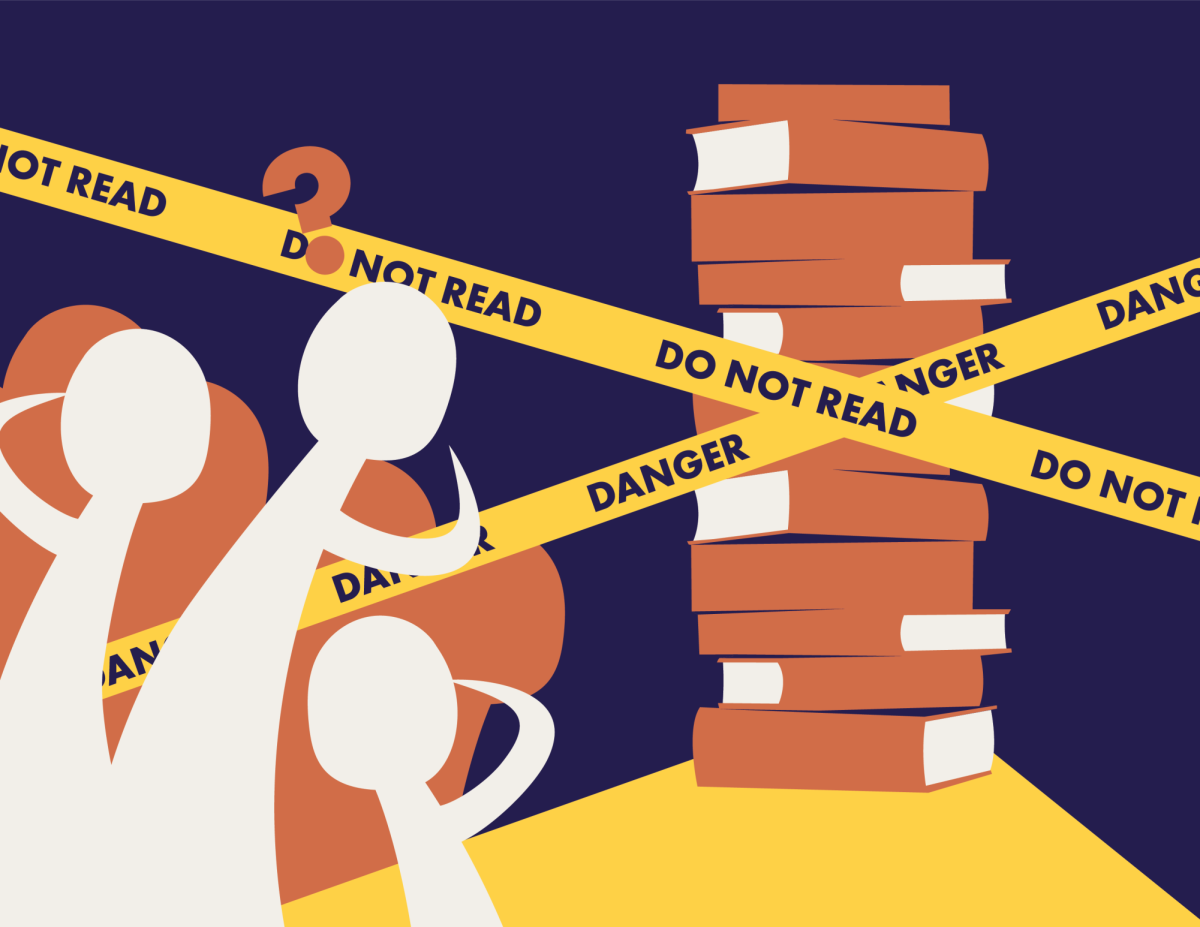Across the state of Utah, school districts are calling to ban hundreds of books, some of which are New York Times bestsellers and award-winning titles. The book bans are backed by the Utah Parents United group, who have argued that some of the books shouldn’t be in schools because of sexual content.
Instead of banning books, Utah school districts should create age-restricted library sections.
With the passage of H.B. 374 in Utah’s 2022 general legislative session, the bill prohibits sensitive materials in schools. However, the bill allows each school to have its own unique policy in censoring materials, recognizing that there isn’t a single, uniform approach that fits all schools.
The main aim of the bill was to remove pornographic material, but it evolved to censor diverse perspectives.
Most banned books included topics about race and the LGBTQ+ community. Books about the LGBTQ+ community often face bans or challenges because they can lead to conversations about diverse sexual orientations and gender identities. On the other hand, books including race are challenged due to their potential to spark discussions about racial discrimination and inequality.
While Utah Parents United argues that their focus is on sexually implied content and indecency, this is more of an attempt to censor LGBTQ+ content, as it’s become increasingly apparent that Utah Parents United care about preventing their children from interacting with the queer community.
And it’s more than queer censorship — it’s racially charged, too. This highlights a broader issue of silencing diverse voices and narratives in Utah school districts.
Allowing parents to object to books simply to prevent their children from being exposed to them is problematic because if all it takes is a complaint, we won’t have many books left.
In addition, pulling books from shelves can be detrimental to a kid’s learning experience. For one, it restricts their exposure to diverse perspectives, limiting their capacity to develop thinking skills and empathy. Secondly, it can prevent discussions on crucial social topics, limiting their ability to understand and engage with the world.
“When those things are in books, they are real things,” said University of Utah professor Lauren Liang in an interview with The Salt Lake Tribune. “We don’t like to think about the number of kids who experience these things, but they’re here and they do. When the books are shut down, what message are you sending to the kids who have experienced that?”
If we go off keywords for banning books, people are going to find arguments for even more books. The Davis School District banned the Bible for “vulgarity or violence,” illustrating how anyone can raise objections against any book.
It only gets worse for authors. If authors have to worry that their work might anger readers or face bans, it takes away creativity and threatens their livelihood.
Creating an age-restricted section would prevent issues like inappropriate exposure for younger readers and is said to be a key reason for the Utah Parents United, which declined to comment on this proposal.
Books are paramount for success in developing young minds — and they give students new ways to think. Books also help students understand who they are, which is ultimately the student’s choice, not their parents. While parents play a crucial role in guiding and supporting their children, it’s important to strike a balance between providing direction and allowing room for independent decision-making.
In a world where digital is taking over, it’s healthy for kids to read. The more we take away books, the less students are going to read them. By making a specific section for all books that are believed to be offensive, we can protect younger audiences while simultaneously offering older students the chance to learn new perspectives and experiences.


